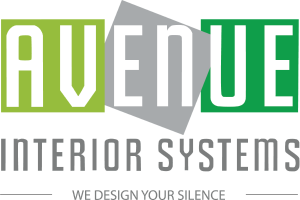How your venue can lower noise levels and avoid penalties
The hospitality industry – from hotels and restaurants to bars and event spaces – offers many different services to its customers. Yet in all these venues, the noise generated by equipment can impact the guest experience negatively.
This article will explore the common sources of noise found in hospitality venues, the noise pollution regulations in Australia, and the steps your establishment can take to create a comfortable environment for your guests.
Noisy equipment in hospitality venues
Hospitality establishments often have equipment that generates high noise levels, such as:
- Commercial dishwashers
- Ice machines
- Benders
- Food processors
- HVAC systems
- Laundry machines
- Coffee grinders
- Espresso machines, and
- Commercial mixers.
These machines are essential for providing guests with a comfortable environment and quality service. Yet they can still be quite loud thanks to their powerful pumps, motors, freezing and harvesting processes, grinding and brewing mechanisms, and other functions.
So what can be done to offset these noise making machines?
Australian regulations around noise pollution
Regulation of noise in the hospitality industry in Australia is primarily the responsibility of state and territory governments. Some national guidelines and standards do also apply. The following are some of the key governing bodies:
1) Environmental Protection Authority (EPA)
Each state and territory has its own EPA responsible for enforcing environmental laws related to noise pollution. The EPA may issue noise permits or licenses for certain types of businesses, such as those that operate after hours.
2) Local councils
Responsible for regulating noise in their areas, local councils may have specific by-laws or regulations that apply to businesses in the hospitality industry. They may also investigate noise complaints from residents.
3) Safe Work Australia
This national body sets guidelines and standards for workplace health and safety, including those for managing noise in the workplace.
4) Australian Acoustical Society (AAS)
This professional society promotes the science and practice of acoustics in Australia. It provides technical advice and guidance on noise issues to government bodies and the public.
5) Australian Standards
These are national standards developed by Standards Australia that guide noise levels in different settings, including the hospitality industry. The standards are not legally binding, but may be referred to by government bodies in their regulations.
What are the penalties for excessive noise?
If hospitality venues break noise regulations, they can be fined. The severity of the penalty or fine depends on the state or territory, and can be a warning, notice to comply, or several thousand dollars or more. The regulatory authority may also limit business operating hours or activities to prevent future noise disturbances. For repeat offenders, more severe penalties may be imposed – including license or permit revocation.
Steps hospitality venues can take to reduce noise levels
Reducing noise levels in a venue such as a café can be challenging, as they are often busy and noisy, with many customers and staff talking, music playing, and equipment running.
Fortunately, there are things hospitality venues can do to minimise noise levels and create a comfortable environment for guests, including:
1) Soundproofing
Installing sound-absorbing materials such as acoustic ceiling tiles, wall panels, or curtains can help reduce the amount of noise that bounces around the venue. Carpets or rugs can also help to reduce noise levels.
2) Equipment selection
Choosing quieter equipment, such as coffee grinders, blenders, and dishwashers, can make a big difference.
3) Furniture selection
Selecting furniture with built-in sound-absorbing materials, or choosing furniture made of materials that absorb sound (such as felt or fabric) can help reduce noise levels.
4) Layout and design
The venue’s layout and design can also impact noise levels. For example, separating the seating area from the kitchen or bar area can reduce noise levels in the seating area. Partitions, screens, or plants can also create a more intimate and quieter atmosphere.
5) Music volume
Playing music at a moderate volume can help create a more relaxed atmosphere without adding to the noise level.
6) Staff training
Proper staff training can help reduce noise levels in a cafe. For example, training staff to close doors quietly, not to slam dishes, and to speak softly, can all help to minimise noise levels.
7) Communication with customers
Communication about noise levels can also help create a more comfortable environment. For example, signage can be used to remind customers to keep noise levels down or to ask customers to use headphones when watching videos or playing games.
In addition to these steps, it’s important for cafe owners and managers to monitor noise levels in their cafes regularly and take action if necessary. This can include addressing noise complaints from customers or neighbours, adjusting music or equipment volume, or reevaluating the layout and design of the cafe.
By reducing noise levels in cafes, owners and managers can create a more comfortable environment for their customers and staff and help minimise the impact of noise pollution on their community.
Talk to Avenue about soundproofing solutions for hospitality venues
Noise pollution in the hospitality industry can have a negative impact, both on the guest experience and the surrounding community. That’s why hospitality businesses need to minimise noise levels, comply with noise regulations, and be good neighbours.
Whether you’re a business owner, employee, or customer, there are steps you can take to help reduce noise pollution in the hospitality industry. Working together can create a more peaceful and enjoyable environment for everyone.
For more information on any noise control products, get in touch with the Avenue team on 1300 827 177.



